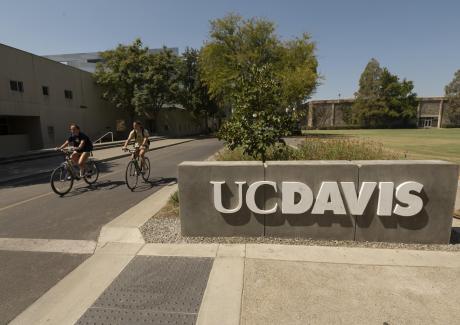National Research Center on Poverty and Economic Mobility Early-Career Mentoring Institute
Application Deadline: 11:59pm PT, August 15, 2025
View/Download the Full RFP in PDF Format
Institute Dates: January 5-8, 2026
Institute Location: Davis, California
About the Early-Career Mentoring Institute
The University of Wisconsin-Madison’s Institute for Research on Poverty (IRP) and the University of California, Davis’s Center for Poverty & Inequality Research (CPIR), invite applications for the 2026 National Research Center on Poverty and Economic Mobility Early-Career Mentoring Institute (ECMI). This weeklong convening, held in Davis, California, will provide valuable mentoring and career development opportunities to poverty and social mobility scholars who are in the early stages of their research careers and who have the potential for leadership in human services research.
The institute will provide participants with opportunities to develop skills needed to conduct policy-relevant human services research. The training will foster research on human services programs administered by the US Department to Health and Human Services’ (HHS) Administration for Children and Families (ACF) including programs like child welfare, child support, childcare, Temporary Assistance for Needy Families, and youth homeless services. The training will also foster research on the broader social safety net programs (e.g., Supplemental Nutrition Assistance Program, subsidized housing programs, employment and training programs, and tax credits) especially as those programs interact with the human services administered by HHS.
With the help of faculty mentors and featured speakers, the Institute will address a wide range of professional development topics, such as:
- Key topics in human services research
- Conducting policy relevant research
- Building and managing a research team including becoming an effective mentor
- Developing effective writing habits
- Grant writing strategies
- Including participant voice in research
- Studying hard to reach populations
- Secondary data sources: promises and pitfalls
- Engaging with media, community organizations, and lawmakers
Workshop participants will be eligible to apply for a small financial award to support the development of their policy-relevant human services research portfolio. Applications will be due about a month after the training and will be open to only the 2026 ECMI participants. More details to follow.
Eligibility
Successful applicants must show evidence of research experience in areas relevant to poverty, low-income populations, or related social policy, as well as the potential to produce rigorous policy-relevant human services research to inform policies and programs to combat poverty and/or its effects.
Proposals are invited from poverty and social mobility scholars who:
- Completed their doctorate no more than six years prior to the ECMI’s start date, or expect to complete their doctorate in 2026; and
- Do not currently hold a tenured faculty position (although we welcome applicants from scholars in tenure-track positions).
We particularly welcome applications from scholars who come from economically disadvantaged backgrounds and those who are currently working at a university that is not designated as an R1 “very high research activity” by the Carnegie Commission on Higher Education.
Award Information
ECMI scholars’ travel to Davis, CA, will be fully funded, as will their lodging and meal expenses for the duration of the Institute. Participants will be matched in small groups of three scholars with a senior faculty mentor who will work closely with the scholar throughout the week’s activities.
Selection Process
Following initial screening to ensure completeness, applications will be evaluated by a panel of CPIR and IRP faculty affiliates. Applications will be evaluated according to:
- The scholar’s record of original and significant contributions to knowledge on issues related to poverty and economic mobility, taking into account the scholar’s relative advantages and constraints over the course of their academic career;
- The scholar’s interest in developing a research agenda with the potential to influence the policymaking process, especially related to human services programs administered by the U.S. Department of Health and Human Services; and
- The scholar’s potential to benefit from ECMI participation relative to their current resources and supports.
Application Instructions
Applications will be accepted via the online application portal. In addition to the background information requested in the online application, please also provide the following as PDF file uploads:
- A letter (no more than two single-spaced pages) that:
- describes your poverty and social mobility research interests with a particular focus on expanding your research agenda to include policy-relevant research on human services programs administered by HHS as well as your professional goals in this area, progress toward them, and accomplishments to date; and
- identifies up to three senior scholars whose work has inspired or influenced your own research and career goals, explaining why you aspire to a similar career.
- Your curriculum vitae.
- One example of your poverty or social mobility-related written material.
Timeline
Applications for the 2026 ECMI are due by 11:59pm PT, August 15, 2025. Participants will be notified of the status of their application by mid-September.
About IRP
The Institute for Research on Poverty is a center for interdisciplinary research into the causes and consequences of poverty and inequality in the United States and the impacts of related policies and programs.
As the National Research Center on Poverty & Economic Mobility sponsored by the U.S. Department of Health and Human Services, IRP coordinates the U.S. Collaborative of Poverty Centers (CPC). IRP and its partner centers support and train poverty and economic mobility scholars. In addition, IRP and its partner centers provide relevant, cutting-edge research on a wide range of topics with the goal of improving the effectiveness of public policies to reduce poverty and its consequences.
About CPIR
Founded in 2011, The UC Davis Center for Poverty & Inequality Research’s mission is to facilitate non-partisan academic research on poverty in the U.S., disseminate this research, and train the next generation of poverty scholars. Our research agenda includes four themed areas of focus: labor markets and poverty, children and intergenerational transmission of poverty, the non-traditional safety net, and immigration.
Contact
All inquiries about the Institute and application process should be directed to Dr. Jacob Hibel, ECMI Director, at povertycenter@ucdavis.edu.











